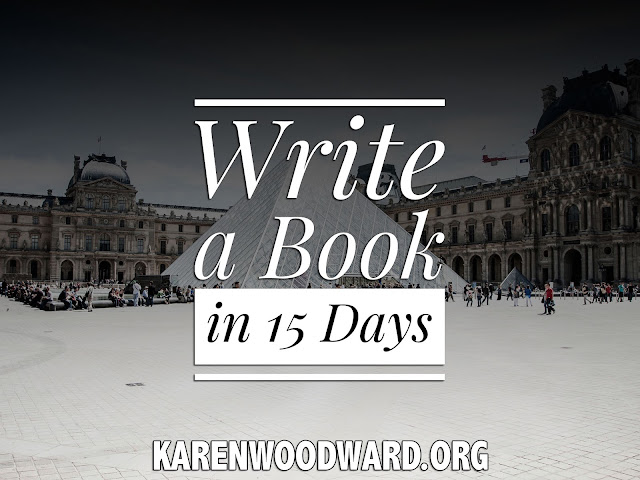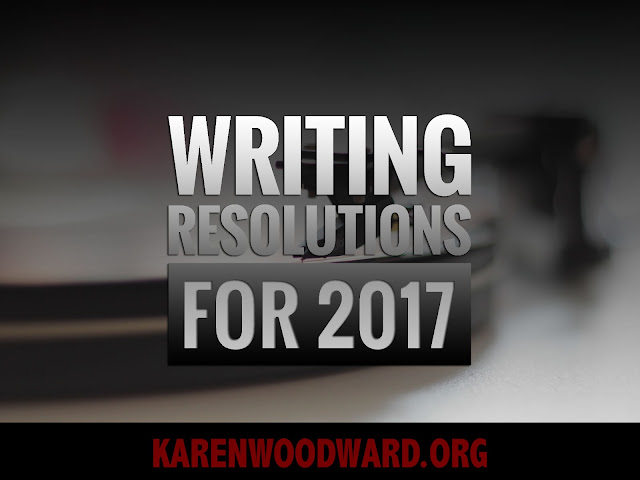This blog post is a continuation of a series I began on Wednesday (Write a Book in 15 Days). Today I talk about a topic entire books have been written about—how to select subcategories for your book—so I can't go into anything in depth but hopefully I’ve been able to communicate something helpful.
In what follows I only talk about Amazon. That said, I’d wager what I say, below, is true of any online retailer.
One more thing before we get started. There’s an invaluable (free!) resource I’ve found on the web called the Amazon Sales Rank Calculator. It will do exactly what the name says. If you give it the Amazon Sales Rank of a book it will tell you approximately how many copies of the book are sold per day.
The importance of categories and keywords.
The single most important thing you can do for your book is choose effective categories and keywords. You could write the best book in the world but if folks can’t discover your book, they’re won’t be able to buy it!
Genre and categories.
By this time you should have an idea for a book. Your idea will no doubt be refined over time, but you should have some notion what general topic you want to write about. For example, let’s say you want to write about how to start a website.
1. Think up search terms.
We want to find books about how to start a website. That is, books that are similar to the book you want to write. Why? Because we want to (a) see what keywords these sort of books use, (b) what categories they’re in and (c) how well they’re doing.
Bootstrapping: To start off, we need to think of a few possible search terms. Let’s try “website.” If that doesn’t work we can use “website create” or “website launch.”
2. In the categories “Books” and “Kindle eBooks” search for the keyword.
In our case this keyword is “website.” So head over to Amazon and search for “website” in the category “Books.” If you just want to click a link, here it is.
2a. On the left-hand side of the page you’ll see “Show results for.” Just below this is “Any Category” and under that is “Books.” Under this you’ll see categories listed. For example:
Computers & Technology
Web Development & Design
Blogging & Blogs
And so on. Now pick a category—something you think might be a good fit for your book—and drill down (by which I mean, click on the category to expose its subcategories). What sort of books are coming up? Are they similar to the one you want to write? If so, you’re on the right track, keep drilling. If not, try another category.
2b. Now do the same thing we did in 2a only change the parent category to “Kindle Store.” Here’s the link.
As before, take a look at the categories returned. Which ones stand out to you as being the best fit for your book?
After playing around a bit, looking at various categories, I chose these two:
Subcategory One: Books > Business & Money > Small Business & Entrepreneurship > Home
Subcategory Two: Kindle Store > Kindle eBooks > Business & Money > Entrepreneurship & Small Business > Small Business
3. Find example books: For each subcategory you chose, search on your keyword, sorting by RELEVANCE.
The keyword I’ve been using for my example has been “website.” If you’re not sure what I’m talking about just click the links, above, and you’ll see what I mean.
Now look at the books that came up. Note: These won’t be ordered by how well the books are selling. Don’t worry about this right now. We’re looking for books like the one you want to write because we’re interested in what categories they’re in.
For example, for “Subcategory Two” the first book listed (this will change over time so the first book might be different when you try it) is “Websites: How To Generate Online Income While You Sleep.” We’ll look at this book in more detail in (4), below.
4. For each example book look at (a) its Amazon Best Sellers Rank and (b) the categories it’s doing well in.
For instance, “Websites” has a Best Sellers Rank of 276,667 and is doing relatively well in the following subcategories:
- Kindle Store > Kindle eBooks > Business & Money > Entrepreneurship & Small Business > Small Business
- Kindle Store > Kindle eBooks > Business & Money > Entrepreneurship & Small Business > Home-Based
- Books > Business & Money > Small Business & Entrepreneurship > Home Based
You’ll want to do this for AT LEAST 10 books. For each of these 10 books write down their title, their Best Sellers Rank and the subcategories they’re doing well in.
5. For each subcategory, find out which has the most popular books.
How do you do this? Well, frankly, it’s a bit tedious. That said, this is the most important step.
Go to each subcategory. On the first page, the books will be numbered from 1 to 20. The number 1 book will be the best selling book in that category while the number 20 book will be the book that sells worse than number 19 but better than number 21. The thing is, the number one book for a subcategory can have a really bad Best Sellers Rank. It can be, say, 200,000! If that’s the case, this isn’t a category you want to write for because even if your book lands at number 1, chances are you’re not going to sell a whole lot of copies!
On the other hand, if the number 1 book has a Best Sellers Rank of, say, 200 then that means that books in this category might be popular. Now you want to look at the Best Sellers Rank of the number 20 book. What is it? If it’s 200,000 then it looks like only one or two books are going to be lucrative which makes this subcategory not very attractive.
But imagine that the number 1 book has a Best Sellers Rank of 200 and that the number 20 book has a Best Sellers RAnk of 8,000. That’s good! Keep going. What’s the Best Sellers Rank of the 40th book? If it's under 50,000 then it looks as though this category is popular with readers.
In general, for each subcategory, compare the Best Sellers Rank of the 1st book to the Best Sellers Rank of the 20th book. If the 20th book has a sales rank of LESS THAN 50,000, then look at the Best Sellers Rank of the 40th book. If that book has a sales rank of less than 50,000, then look at the Best Sellers Rank of the 60th book. And so on.
But, we're not done!
6. For each subcategory, find out how many books it includes.
If a popular subcategory has oodles of books then that subcategory becomes less attractive because the competition is fierce. On the other hand, if a popular subcategory has the same amount of books (or fewer books!) as a less popular subcategory then that’s an opportunity. These books are popular and, relatively speaking, there’s not much competition. I’m not sure how long that state of affairs would last, but it’s something to notice.
How you can tell if a book is selling well.
The lower a book’s Amazon Best Sellers Rank the better. A Best Sellers Rank of 1 is the best selling book on Amazon. A rule of thumb is that if a book has a Best Sellers Rank of 100,000 then it sells about one copy a day.
Let’s say that after you’ve done all this research you determine that the categories your book fits with the best aren’t that lucrative. Even the best selling book sells only about one copy every three days. Here are your choices:
a. You could write and publish your book.
The topic you’ve chosen could be one you’re passionate about and you don’t care how many copies it sells. If this is the case, go for it! Or it could be that you have a popular website and feel confident that you can drive traffic to your book. Again, if this is the case, go for it! That said, one thing you might consider is that if the overwhelming number of sales are going to be driven from your website, why not sell the book from your website? That way you don’t have to pay Amazon a royalty!
b. You could go back to the drawing board.
You could go back to your essential concept and tweak it until you find a more lucrative category.
There’s no wrong choice, it's completely up to you and what your goals are.
Every post I pick a book or audiobook I love and recommend it. This serves two purposes. I want to share what I’ve loved with you, and, if you click the link and buy anything over at Amazon within the next 24 hours, Amazon puts a few cents in my tip jar at no cost to you. So, if you click the link, thank you! If not, that’s okay too. I’m thrilled and honored you’ve visited my blog and read my post.
Today I want to recommend, How To Podcast 2016: Four Simple Steps To Broadcast Your Message To The Entire Connected Planet ... Even If You Don't Know Where To Start, by Paul Colligan. I’ve wanted to start a podcast for a while now, but I've found the prospect daunting.
Although I appreciated Paul’s tips the thing I liked most about his book was its encouraging tone. If you’ve never created a podcast the prospect can be intimidating so I loved that Paul constantly stresses how simple it can be. From the blurb: “You don't need expensive equipment and an audio engineer to make a podcast that people will love and listen to. People want to know ... what you have to say and it is easier than ever before to let them.”
Looks like I won’t be able to finish this post today! I’ll wrap the series up on Monday when I’ll discuss how to choose a title, how to actually write the book. I’ll also talk about the pros and cons of using a pen name as well as how to create an eye-catching cover.
Stay tuned and good writing!
UPDATE: For your convenience, here are links to the other articles in this series:
Part 1 of 1: How to Write a Book in 15 Days
Part 2 of 3: How to Pick Categories for Your Amazon Book
Part 3 of 3: How to Choose a Title, Create the Artwork and Write the Darn Book!





